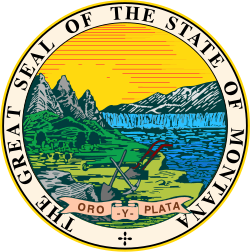November 6, 1990 | |||||||||||||||||
| |||||||||||||||||
Baucus: 50–60% 60–70% 70–80% 80–90% Kolstad: 40–50% | |||||||||||||||||
| |||||||||||||||||
| Elections in Montana |
|---|
 |
The 1990 United States Senate election in Montana took place on November 6, 1990. Incumbent United States Senator Max Baucus, who was first elected in 1978 and was re-elected in 1984, ran for re-election. After winning the Democratic primary, he moved on to the general election, where he was opposed by Allen Kolstad, the Lieutenant Governor of Montana and the Republican nominee. Baucus ultimately ended up defeating Kolstad in a landslide, winning his third term with ease.



